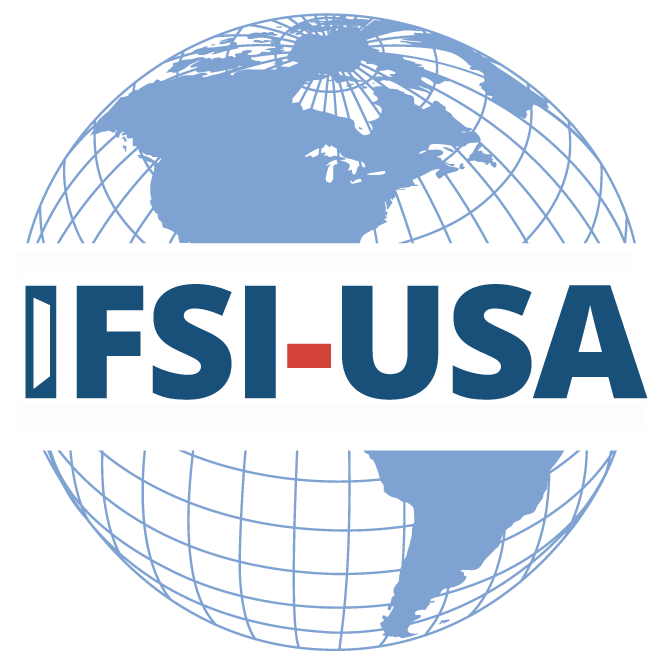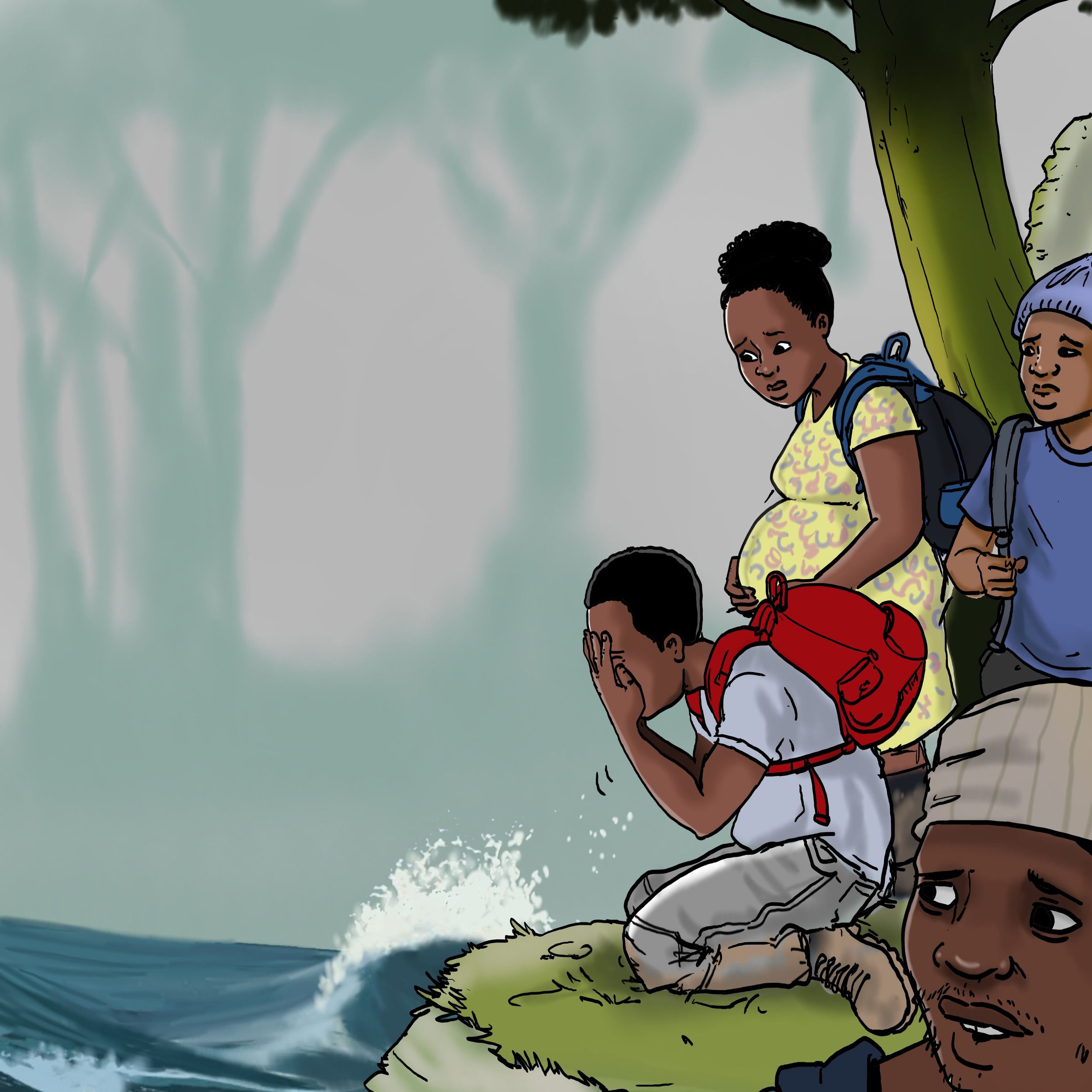Upon US arrival: A Haitian migrant remembers his lost brother
JR awakens to rising flood waters and a missing brother. Serious hazards are not always apparent to migrants traveling through unfamiliar lands.
In many cases, leaving Haiti for greener pastures is a family affair. Parents often sell their lands and cattle and incur debts to pay for their children's passports, visas, and travel expenses. The children, in turn, upon arriving in their host country, must find work to repay the debts and later on send for their siblings.
That was the case for JR. As he was unemployed in Haiti, his father decided to send him to Chile, consenting to all expenses related to the trip. "When I was a child," JR explained, "my father used to tell us, his children, that he didn't want us to suffer as he had. He wanted us to have a better life. He opened his heart, he did so much for us, and this inspired me as a young man to leave Haiti so I could help my family."
It was June 2017, as JR and his wife stood among thousands of young Haitians in the Toussaint Louverture airport, awaiting a flight to Chile. Many of those present were university graduates who could not find work in Haiti.
For two years, the couple tried to build a life in Chile with JR's brother Wismy who had joined them later—but it was challenging. At first, the brothers worked hard to make a decent living. However, eventually like many other Haitians, they were targeted by certain Chileans who resented their presence. "Sometimes, when you got out from work, they would pull a knife or a gun on you," he recalled. "They would take your phone and money and then warn, if you go to the police, the next time we will kill you." It got to be too much.
Fearing for their lives, they decided to leave Chile. JR remembers the exact date. It was April 7, 2019, when they began their journey overland with other Haitians bound for Mexico with the US as their final destination. "Ever since I was little, I've had that dream," JR reflected. "I've always said I have to go to the United States, even if I stay there for just one day and then die."
On April 22, they had crossed from Colombia into Panama and were deep in the jungle. Until then, their trip was uneventful. But at this stage, they had to walk through dense vegetation, cross many rivers, sleep under tarps, and drink contaminated water from a river. It was the most dangerous part of the journey, and they felt like heroes for taking such risks. "When you get to the jungle, you see a lot of things," JR explained.
One afternoon they took a nap under a tarp and close to a river with trees along its banks so big it would take several people to wrap arms around the trunks. Suddenly JR awoke to water rising all around them. His wife was by his side, but his brother, who had chosen a spot to sleep even closer to the river bank, was nowhere in sight. "Wismy, water!" JR called out in warning. But when he stood up, wading around waist-deep in water, he realized that the flood had carried off Wismy along with several other travelers.
"A 10 or 12-year-old child managed to escape, but my brother, who was 26, just disappeared," JR lamented. "I don't know how it happened." Looking back, it still doesn't make any sense to him. Almost two days before, the waters subsided, allowing them to continue. Then, a week later, they received reports that several bodies had washed up on the river bank, but it seemed pointless to retrace their path to see if Wismy was among the dead. They had already covered too great a distance. JR conceded that he would never see his brother again.
"The loss tore me apart," JR said, "and I didn't know how I would tell my parents that my brother was dead." Two or three weeks later, he managed to speak with his father and share the devastating news. "But with my mother, so far, we have still not talked about it. She wouldn't have the courage to hear me tell her the story of her son's death." Though deeply distressed by his brother's demise, JR found enough strength to continue on his journey towards his US destination.
JR could not stop thinking about Wismy. He sadly reflected, "Though I'm not a mother, the loss of my brother dismembered me." As the older brother, he felt that he was supposed to have protected his younger brother, taking care of him, and guided him - especially while in the jungle. If anyone were to die, thought JR, it should have been me. They both had dreamed of living in the US. He was also haunted by wondering whether his parents might blame him for his brother's death. It was with a heavy heart that he continued. Though still there physically, crossing the land and passing through checkpoints, his spirit had been crushed. It had effectively drowned with his brother.
After crossing the border and completing an initial asylum interview, JR and his wife were accepted entry to the United States. His family sent them plane tickets to Boston, Massachusetts, days later.
JR and his wife embrace their newborn with gratitude and sense of renewal. IFSI facilitated their health care coverage and admittance to a welcoming hospital.
Shortly after their arrival, the Immigrant Family Services Institute (IFSI-USA), a non-profit organization based in Boston and Massachusetts Immigrants Collaborative member, helped JR fill out the Temporary Protective Status (TPS) form, obtain food stamps, and complete health care coverage applications. They also interviewed him for this story. The health coverage was critical and timely as his wife, quite pregnant by this time, was ready to give birth. IFSI then helped them with admittance to a local hospital sympathetic to their circumstance , and a healthy baby girl entered their world. For this young couple, the birth of their first child was a godsend helping them move on from the devastating journey and look ahead with some hope. Today, they live in Dorchester, anticipating approval of their TPS application, allowing JR to work and support his family.
Navigator lessons for immigrants and US citizens:
1. Parents generally want their children to have a better life. Though those in conflict-ridden or impoverished settings will often make significant personal sacrifices, that is universal. The parents incurred monetary expenses by sending the boys off to another country. More significantly, they sacrificed the ability to see them for years, uncertain if they had made the right decision. Tragically one son died, which resulted in enduring, profound sadness.
2. Traveling and working in countries and cultures different from one's own involves physical risks, confusion, and significant emotional challenges. Seeking emotional support along the way is very important for men and women alike and should not be regarded as a sign of weakness. This can look like talking with people you meet on the road and accessing professional care.
3. Learning to constantly watch out for potential hazards and assess risks on the road is essential to develop and practice. In foreign settings, asking locals and fellow travelers about possible risks is an effective way to learn about and avoid hazards. In this story, the brother may not have been swept away had they possessed more local knowledge about the sudden rise and fall of the river.
4. International law on asylum, established in 1966, permits anyone from any signatory country to present themselves at the border of another country to request asylum without risk of being imprisoned. Many countries, including the US, have been known to violate this law. In this story JR and his family presented themselves and were granted entry pending a review of their case but this is not always the case.
5. Temporary Protective Status (TPS) may be granted while an individual/families' case is being reviewed for asylum or other residency granting status. TPS allows for a legal work permit, which is critically important since earning a living is critical not only to survival but also for integrating within US society. In this story, JR and his family were hoping to receive TPS status while their asylum case was processed.
6. JR comes from a middle-class Haitian family with connections in the Boston area able to fly him up from the southern border and help with housing. Prospective immigrants must identify the kind of support they may receive from family or close friends and then determine how to access it. Use your connections!
7. In every US state, some people and organizations oppose illegal immigration and those that warmly welcome and support immigrants, including the undocumented. IFSI, cited in this story, is just such an organization and is situated in Massachusetts, which is more sympathetic than most.
8. Healthcare in the US is not easy to access, but in states like Massachusetts, if you gain the support of an organization like IFSI, it is possible to receive high-quality assistance, as was the case for JR's wife and their birth child.
By The IFSI Immigrant Navigator Team: Dr. Mario Malivert, Larry Childs, Adam Olivier, Makendi H. Alce, and Angie Gabeau
Cartoon illustrations: Teddy K. Mombrun


